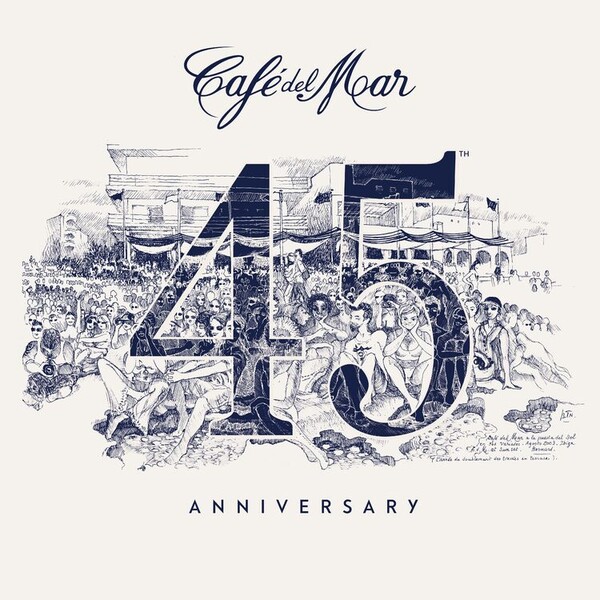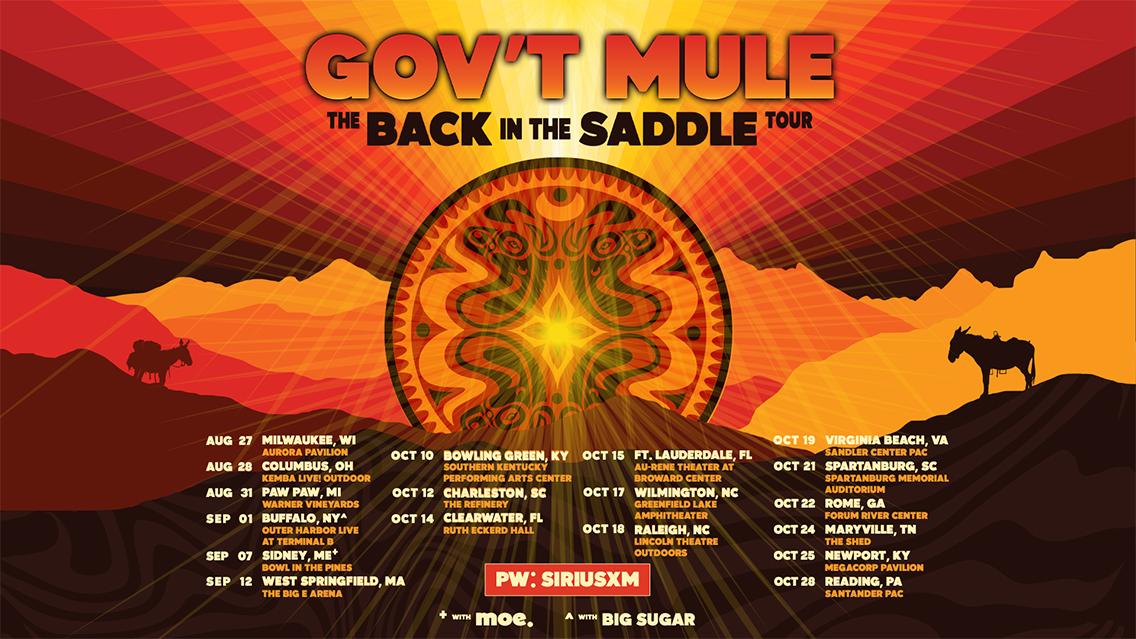Explaining how Die Spitz’s formation began as a joke that went too far, Chloe Andrews and Kate Halter sit side by side on a couch in their hotel room, a nostalgic smile spreading across their faces as we chat about their band’s early days.
Growing up as childhood friends, Halter, Ellie Livingston, and Ava Schrobilgen began playing music as an excuse to hang out during the upheaval and malaise of the pandemic. But the addition of Andrews reveals just how many sliding-doors moments the four had experienced before getting to this point; when they finally came together, it felt long overdue. As Halter explains with a laugh, “There were so many crossing paths.”
Potentially the result of growing up in the same town, there were many moments that could have led to the formation of Die Spitz, or at least premonitions of how connected the four would eventually become. As we chat, Halter talks about the time she gifted Livingston a picture collection of miniature vintage cars – a lifelong love of Livingston’s – and in one of them was Andrews, cruising down the highway in a 65 Volvo, a fact they wouldn’t realise until Andrews joined the band months later.
“I was in high school and there were people who would be like, ‘Dude, there’s this girl at this other high school [who] looks just like you,” Andrews adds. “And I was like, ‘Holy shit, that’s Kate.’”
Deciding on the moniker ‘Die Spitz’ – which, aptly, is German for pointy or sharp – during a Fireball whiskey-induced session, the quartet gained prominence with their evocative, mosh-ready sound. Taking inspiration from bands such as Black Sabbath and Nirvana to create distinct hits such as “Hair of Dog” and “I hate when GIRLS die”, the group have used their shared experiences to hone their sound into punchy, unapologetic rallying calls – as they put it, with the aim of inciting mayhem.
Previous EPs such as The Revenge of Evangeline in 2022 and Teeth in 2023 are a testament to this fact. Both hold nothing back, with Evangeline showcasing the band’s tenacity for anarchic and hell-raising punk, while Teeth artfully employs gruesome lyricism and power chords to connect with audiences over themes of female rage. It’s no surprise that the latter album won Album of the Year at the Austin Music Awards in 2024. Since then, the band have harnessed their experiences and expanded their process so that their debut LP, Something to Consume, builds on what came before it – using it as an avenue for experimentation in both their sound and lyrics.
“We have a lot of respect for each other,” Andrews tells me, “so we’re not overbearing and trying to control the process of anyone’s writing. I think that’s why it comes about so naturally.”
“We don’t only write the song ourselves,” Schrobilgen, who had been resting her voice up until this point, says, entering the chat by sitting down on the arm of the sofa. “We bring it to the band and then we let them give their two cents and write their own parts for their instruments and all of that.”
Their debut with Third Man Records, Something to Consume finds the band experimenting with the various music genres that inform each of them individually. In doing this, Die Spitz have created a kaleidoscope of defiant, melancholic, and celebratory music that weaves together the multiple strings of alternative subgenres they grew up admiring, effortlessly telling the band’s story so far.
The effect of this is that fans will be able to hear what defines a Livingston track versus a Schrobilgen one. In a move reminiscent of an ensemble show, the members switch out instruments, taking turns on lead vocals. Livingston’s holler will take centre stage in “Throw Yourself to the Sword” whereas Schrobilgen will be leading the charge for tracks like “Pop Punk Anthem” – each contributing a sound that is unique to themselves. It’s a move that feels fresh as no one is siloed into the ‘singer’ or ‘drummer’ roles.
“I think that process makes it so that, even though I write more punk, Chloe writes softer music, Ellie writes more metal – it’s still cohesive, because it’s still our brainchild,” Schrobilgen explains.
“You’re not gonna find just one genre or just two, or even just three genres on the album – we’re hoping to bring as many people into our experience as possible,” Halter adds.
Hitting ears on 12 September 2025, Something to Consume also enables Andrews, Halter, Livingston, and Schrobilgen to unfurl their wings and express themselves in various other ways. Girlhood is a spectrum and Die Spitz depict this in a very relatable way. This is evident in tracks such as “Punishers”, which Andrews wrote after taking inspiration from the 2000 cult teen classic Twilight, creating a melancholic sound that is deeply romantic in its lyrics and evokes the blue-hued filtered imagery distinctive of the first film.
On the other end of the spectrum sits “Voir Dire”. Also penned by Andrews, the song finds her expressing exasperations about the political landscape in the US, lamenting “You can get what you want, but you don’t get what you need,” referencing her own feelings at the effect of the Trump administration’s political overreach on its citizens today, as her words echo over the fast-paced, light-hearted beat of the drums and bouncy guitar. The song’s happy-go-lucky aura contrasts with Andrews’ vexation, as though her friends have her back, lightening the load.
“I remember being like, ‘We always write something right before we record and I don’t want to do that. Like, we’ve got to be prepared.’ And of course it was me who did that,” Andrews laughs. “ I feel very passionate about that song [‘Voir Dire’]. It came from a deep place of frustration with American politics. So [in the song] I’m looking forward, but I’m a little scared to see the reaction,” she continues, referring to the inevitable backlash from internet warriors, given the song’s political critique.
In the process of working on this debut, the band also developed an understanding of when to step back to open the door to outside input but also when to stand your ground in the decision making process. By no means an easy feat but one that has helped them fine-tune their MO and evolve their sound further over time.
“A month for this album was a bit of a time crunch,” Andrews laughs. “But it wasn’t like that with Mr Will Yip – he was amazing,” she says of the lauded Pennsylvania producer who’s known for his work with punk-adjacent acts including The Wonder Years, Scowl, and Turnstile. “He made the process so enjoyable, but still so productive. And we learned a lot from him. Shout out, Will Yip – the best producer in the world.”
Yip also did pre-production on the songs, Schrobilgen explains, “so we had the album written and we brought it to him, but he pretty much just went through the songs and ‘spliced’. We called it trimming off the fat, and the first song that we recorded – one that I wrote – he was doing that. I was like, ‘Oh, God, I don’t want to change the song!’ Then we played it the way that he recommended. I was like, ‘Shit, this is way better.’ I think just letting go, being less stubborn, was a big lesson for me.”
Being able to perform and travel with each other has been a huge highlight for the four women. It’s for this reason that their live shows are so energetic and memorable, like their set at Mohawk during SXSW Marshall Day 2025, which saw Livingston sing whilst sitting on Halter’s shoulders as she played bass. There is a love and trust that runs deep between the members of Die Spitz, giving them all the confidence to experiment and express themselves individually and help shape the image and sound of the band, making them a powerful group both on stage and in the studio.

 2 hours ago
2
2 hours ago
2


















 English (US) ·
English (US) ·